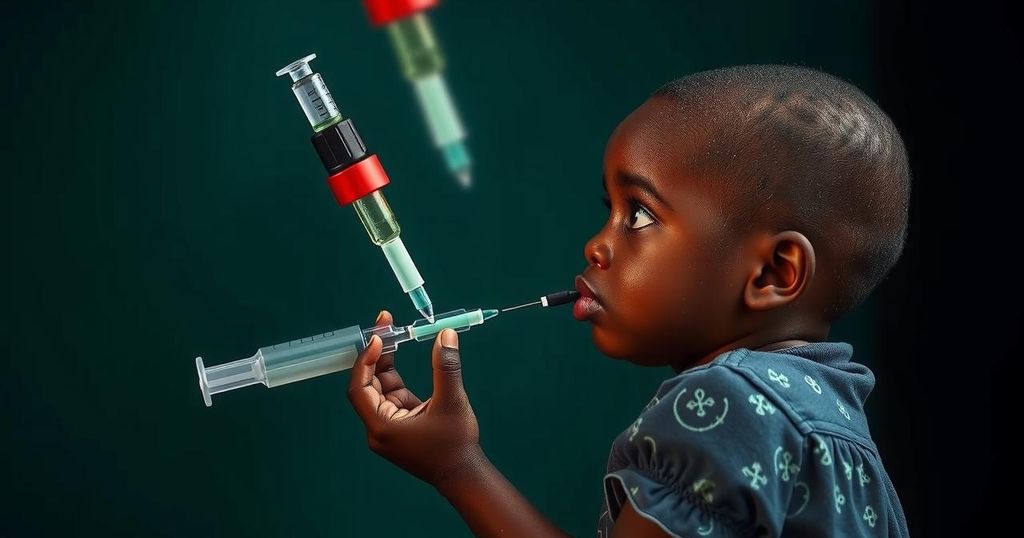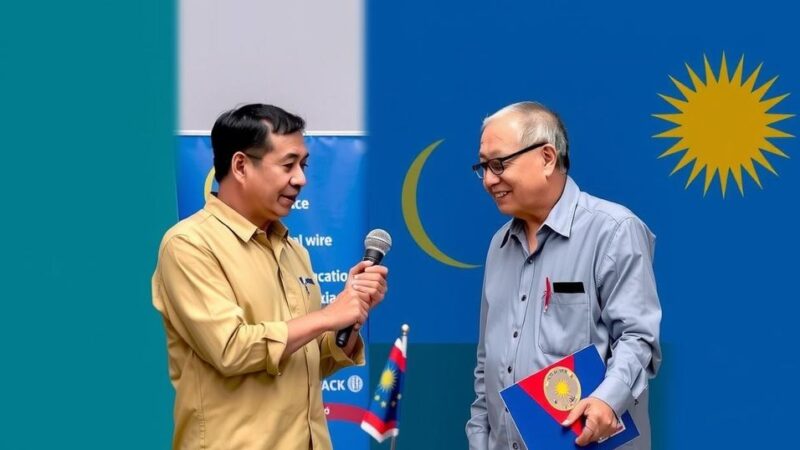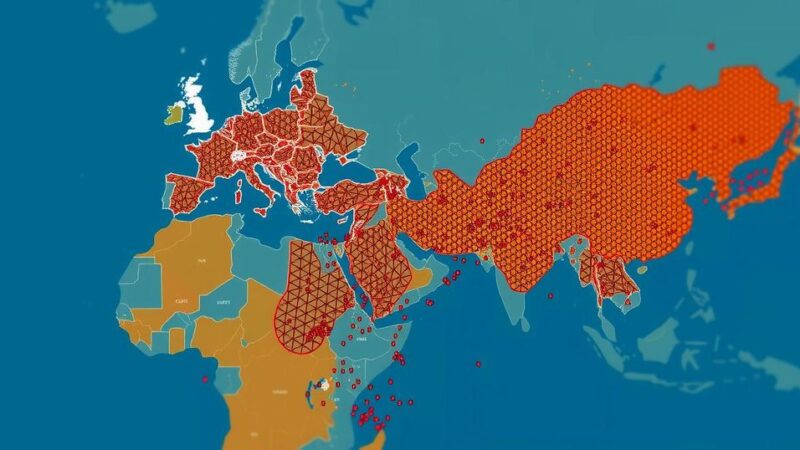Vaccinations against mpox began for adults in Congo, but a legal liability issue delayed children’s vaccinations. Japan’s donation of three million doses of LC16m8, the only approved vaccine for kids, was held up over who bears responsibility for side effects. While the matter is reportedly resolved, experts call for better systems to address liability in future health emergencies.
In the Democratic Republic of Congo, the vaccination campaign against mpox for adults commenced this week; however, the availability of vaccinations for children remains unresolved due to a longstanding legal issue regarding liability for potential vaccine-related side effects. Japan’s pledge to donate three million doses of the LC16m8 vaccine, the sole vaccine approved for use in children, has faced delays as negotiations have unfolded over the financial responsibility associated with adverse effects. While officials from Congo report that the matter has been settled, global health experts emphasize the importance of establishing a reliable system to preemptively address liability concerns to ensure timely human response to health crises.
Delayed negotiations stemmed from fears among lower-income countries of being financially responsible for claims arising from vaccine complications. Congo’s health minister, Samuel Roger Kamba Mulamba, stated in a press conference, “When I read the (donation) contract, I added that both countries must be responsible if any side effects occur. That’s why it took so long, because it went back to Japan.” As of now, no disputes regarding these liabilities appear to exist, and the necessary formalities are reportedly completed.
The LC16m8 vaccine received emergency use authorization from the World Health Organization very recently, while the other vaccine currently being administered to adults has obtained full approval. Since the necessity for vaccinations among children is urgent, health officials underscore the critical need for accelerated vaccine delivery amidst rising mpox fatalities in Africa.
Vaccination procedures with the LC16m8 vaccine necessitate specific training for health workers, especially since it requires a unique bifurcated needle technique. The Japanese government is actively addressing these logistical challenges, although specific solutions have not been disclosed. Health experts assert that a streamlined protocol is essential for the effective distribution and administration of critical vaccines in the context of ongoing health emergencies.
The article discusses the challenges related to the vaccination of children against mpox in the Democratic Republic of Congo. The primary issue arises from Japan’s donation of the LC16m8 vaccine, which is the only approved vaccine for children. Negotiations surrounding liability for possible side effects have delayed the shipment of the vaccines, underlying a broader problem in global health responses where financial responsibility can hinder urgent health initiatives. The context further highlights the urgency of addressing child fatalities from mpox, which have been significant in recent years, demanding quick and efficient vaccination responses.
In summary, the vaccination campaign against mpox in Congo faces significant obstacles due to liability negotiations that have delayed the provision of vaccines for children, despite discussions reportedly concluding. The situation underscores the vital need for an effective global framework to facilitate timely health responses. As adverse consequences can materially impact access to life-saving interventions, it becomes imperative for all stakeholders in global health to prioritize clear agreements to avoid hindrances during future health emergencies.
Original Source: www.usnews.com






